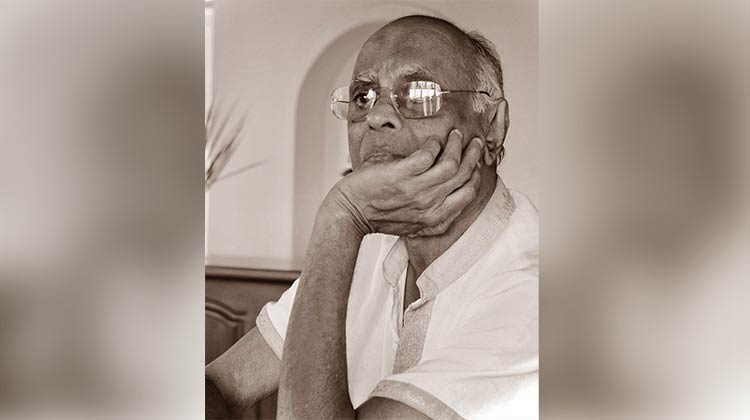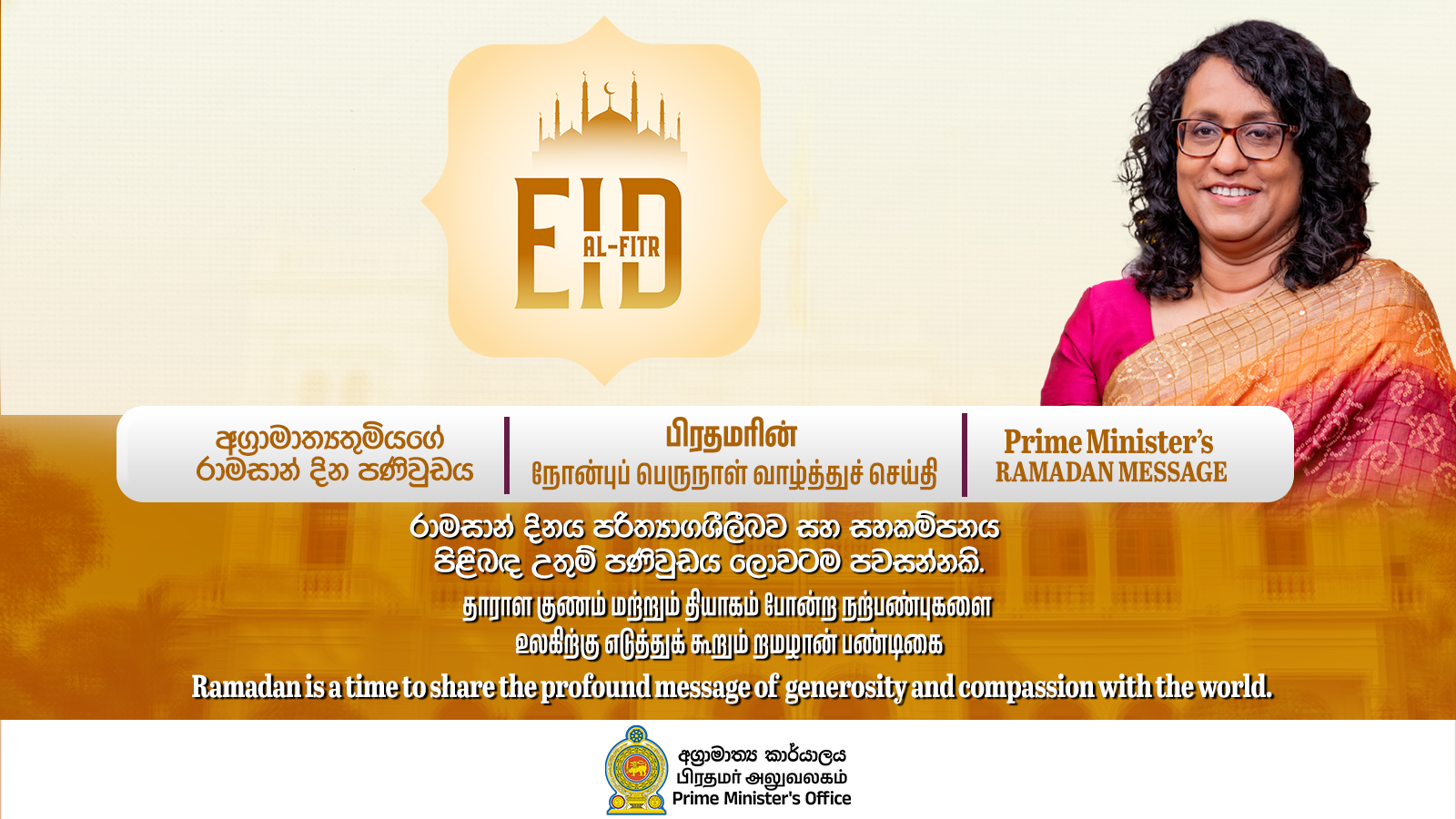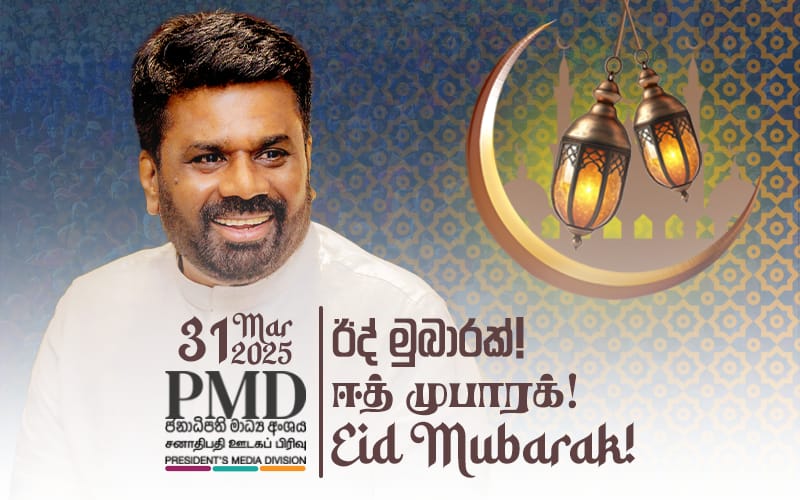News
Professor P V J Jayasekera

Latterly when Karunapala would ring me, or I him, I would ask: “How are you?” and he would invariably reply: “Still vertical” which brought a laugh from me and his usual chuckle. That has ended. He died on Thursday July 11 after two days of a fatal heart condition. Though heavily sedated, he indicated he knew his sons were present with him in the private hospital in Kandy; they being told of their Appachi’s medical condition and arriving within 36 hours from Vancouver, Canada and Scottsdale, USA
Prof P V J Jayasekera, known to us as Karunapala, married my eldest sister’s eldest daughter Sriyangani and integrated himself well with our extended family. He had met my niece when she was an undergraduate at the University of Peradeniya, liked her, and approached her when she took to teaching after graduation. With her consent, he sought approval for his joining the family from her parents. They were married in the mid-1960s.
He was from a much respected family in Galle and had his secondary schooling at Richmond College, Galle, where he was outstanding in studies and sports and was awarded the Darrel Medal for Best All Round Performance. His BA degree he earned from the University of Peradeniya and his Masters from the University of Manitoba, Canada, as Ceylon’s first Commonwealth scholar to a Canadian University.
He married when a lecturer at the University of Peradeniya. The couple moved soon after to Britain with him joining the School of Oriental and African Studies of the University of London, now known as SOAS. Having received his doctorate, specializing in history, my niece and he returned to Sri Lanka.
He joined the teaching faculty of the Vidyodaya University and within a year or two moved to the History Department, University of Peradeniya, as senior lecturer. At this time Sriyangani and he built their house in Anniewatte, designed by Archt. Minnette de Silva, with a spectacular view of hills, vales and the Mahaweli.
They had two sons, Harsha and Channa. My family of siblings is very close knit and thus I saw the two boys grow up when spending weekends with my sister in Anniewatte, Kandy, and visiting the young family, hiking up their hill. Harsha was quiet and spent much of his day in his computer lab in the attic of their house; while Channa was gregarious and loved company, even that of athammas.
Sriyanganie joined the staff of Trinity College as librarian. To her is due the credit of creating the TCK Archives, which was the second in a Sri Lankan school. She found priceless documents like a plan for the Chapel lying around. Fortuitously, Lakshman Kadirgamar, PC, had just returned from the UK and would spend time in his old school and its library. Sriyangani told him of her archives idea and he got the money and it was created excellently. This was the early 1990s just before he joined politics.
Harsha moved to the States and carved himself a career in IT and software development, founding a website that at that time received approximately 1% of internet traffic and has since branched into different areas of consumer internet technology. He graduated from the University of British Columbia. He is now comfortably settled in Vancouver with wife and son. Sriyangani moved to California in 1999 to teach in a Montessori school with the sole purpose of facilitating Channa’s higher education. Her hopes and Karunapala’s aspiration were fully realized. Channa followed medical studies at Duke University, Durham, N Carolina, and further trained at Stanford Univ. Father of an eight year son, he is transplant hepatologist (liver) at Mayo Clinic, mentioned thus by him almost in passing but my son tells me it is a most prestigious post he holds, young as he is.
Karunapala was a true academic. I use this term ‘true’ as the higher echelons – principally political – of this country are awash with Doctors of Phil and Professors. He moved as is due from junior to senior lecturer to Doctor to Professor Jayasekera. Very many are the students who have praised him unreservedly for his intellect and more so for the help he gave them. His sons said they were told this by so many who were present at the funeral held within 24 hours: students and young academics, expressing gratitude to their lecturer/mentor. He was an academic as evidenced in his publications among which I mention only one recently published research tome: 570 paged Confrontations with Colonialism: Resistance, Revivalism and Reform under British Rule in Sri Lanka 1796- 1920 Vol 1, 2017. The second volume will soon be published.
Personal narratives
For me, the human person rather than the academic is significant. But Karunapala dominated as a ‘learned man’ in our extended family and we respected him as such. When a family discussion on politics, history, heritage, international relations bordered on the contentious, we would say, particularly my brother, “let’s ask Karu,” whether present or not.
So when I decided to research and write about noteworthy women of Kandy, I sought his advice. Certainly and gladly given, he said, but his reply to my first draft of introduction was: What is this? To him research was research, not haphazard or scrappy. I was writing no thesis, but correct research methodology could not be compromised. Sriyangani saved me: “You send me drafts and I will edit. You know Karunapala!” But he wrote me my first chapter on the Kandyans, acknowledged as such in my book.
My nephew-in-law combined well with my fun seeking husband, and thus the many family trips done with my brother and two sisters and their families. Once on the spur of the moment we decided to go to Jaffna. A friend offered the use of a house in Chunnakam, but hordes of howling dogs prevented sleep. Karunapala got us the use of a house owned by a prominent college in Jaffna. Good and spacious but haunted both day and night. We weathered them. Best remembered were the holidays in a sprawling bungalow on the Nilaweli beach with plenty of fresh toddy and a barbeque using a sea resurrected metal doormat, organized by him.
Karunapala was a highly responsible minded man. Being one of the younger in his family of successful brothers and nephews, he helped my sister and brother-in-law immensely in advising them and guiding their younger children in studies, careers, marriages. Thus the immense care and affection given him as he lived alone in his beautifully maintained home in Kandy by his youngest sister-in-law Dhammika, and her sister–in-law Daphne, a specialist doctor. His relatives were always at hand to see to his welfare. Also must-be-mentioned Mutthulingam – his Man Friday and cook, who served him devotedly for many decades.
Karunapala mourned his wife’s premature death in August 2008 but opted to stay on in Kandy, and lived till 91 a truly quality life. He had been an outstanding academic, a great help to people, a caring husband, a devoted and latterly proud father and grandfather. We, his in-laws, appreciated and respected him.
He was mindful, deeply concerned about his students and others, good in every way and a humane person. Thus his sojourn in samsara will surely be short.
NPW
News
Ramadan is a time to share the profound message of generosity, and compassion with the World – PM

Prime Minister Dr Harini Amarsuriya in her Ramadan message says that Ramadan is a time to share the profound message of generosity, and compassion with the World.
The full text of the Prime Ministers Ramadan Message:
“As our Islamic brothers and sisters in Sri Lanka and around the world celebrate the sacred month of Ramadan, I extend my heartfelt greetings and best wishes for peace, prosperity, and spiritual fulfillment.
Ramadan is a time of deep reflection, prayer, and self-discipline. It is a period that teaches us the values of compassion, generosity, and unity. Fasting during this holy month is not only an act of devotion but also a reminder of the struggles faced by those less fortunate. It is a time to cultivate patience, humility, and gratitude while strengthening our bonds with family, friends, and the community.
At its core, Ramadan embodies the spirit of kindness, forgiveness, and charity. The practice of Zakat and Sadaqah during this time highlights the importance of sharing with those in need and reinforcing the principle that true prosperity lies in giving and uplifting others. These values are universal and resonate deeply with all communities, fostering harmony and understanding among people of different faiths and backgrounds.
Sri Lanka is a nation rich in diversity, and it is through mutual respect and solidarity that we continue to strengthen our collective future. The spirit of Ramadan reminds us of the need for coexistence, tolerance, and the pursuit of justice and peace.
As the month of fasting culminates in the joyous celebration of Eid, let us carry forward the lessons of Ramadan—compassion, unity, and selflessness—into our daily lives. May this blessed month bring peace to our hearts, our homes, and our nation.
Ramadan Mubarak!”
News
First phase of the Urban Forest Project under the ‘Clean Sri Lanka’ programme launched

The first phase of the Urban Forest Project under the ‘Clean Sri Lanka’ programme was launched on Sunday (30) morning near the Kelaniya Bridge in Peliyagoda.
This initiative was implemented in collaboration with S-lon Lanka (Pvt) Ltd, a subsidiary of The Capital Maharaja Group, aligning with the “Tree Guardian” project. It also coincided with Zero Waste Day which fell on Sunday (30), further reinforcing its environmental significance.
Guided by the Presidential Secretariat, key government and private sector stakeholders, including the Road Development Authority, the Urban Development Authority and the Colombo Municipal Council, partnered in the launch.
As part of the initiative, trees were planted on state-owned land between the Nawaloka Roundabout and the New Kelani Bridge in Peliyagods, to transform the area into an attractive urban forest plantation.
A unique aspect of this project is the assignment of responsibility for the protection and maintenance of the planted trees to various community groups, such as school students, university students and Daham Pasal (Religious School) students. The students of Dharmawijaya Daham Pasala in Peliyagoda were entrusted with the care and preservation of the trees planted near the Kelaniya Bridge.
Additionally, a mobile application (App) has been introduced to continuously monitor and update the growth and condition of the trees, as well as track the progress of their respective caretakers.
Delivering the keynote address at the ceremony, Secretary to the President Dr. Nandika Sanath Kumanayake emphasized that this project is not merely a reforestation initiative but a social, environmental and ethical movement closely linked to the objectives of the Clean Sri Lanka Programme.
Highlighting the historical challenges faced by tree planting projects initiated by previous governments, he noted that many such initiatives have struggled to achieve long-term success. However, he expressed confidence that, due to its strong public participation, the Clean Sri Lanka Programme would ensure the Urban Forest Project evolves into a sustainable and enduring initiative.
Attending the event as a Guest of Honour, Minister of Power and Energy Kumara Jayakody emphasized that the concept of green cities has gained global attention, with increasing focus on urban forests. The Minister highlighted the importance of fostering a mindset shift among the public to achieve these environmental goals effectively. He stressed that assigning responsibility to the people in implementing this project is crucial for its success. Furthermore, he pointed out that greater attention is now being directed toward renewable energy sources as part of efforts to create a sustainable environmental system.
Minister of Urban Development, Housing, and Construction Anura Karunatilaka, who participated in the event, noted that while urbanization has made life more convenient, it has also resulted in significant losses. He explained that Sri Lanka is now experiencing the negative consequences of urbanization, including environmental pollution, water contamination, air pollution and rising global temperatures. In searching for solutions to these challenges, initiatives such as urban forest projects play a vital role.
Minister of Rural Development, Social Security and Community Empowerment Upali Pannilage, Operations Manager of The Capital Maharaja Group S.C. Weerasekara and Senior Additional Secretary to the President, Russell Appuhamy, addressed the gathering.
Latest News
May this Eid-ul-Fitr bring peace, reconciliation and the fulfillment of our shared hopes for a new era of renewal and prosperity – President

President Anura Kumara Dissanayake in his Eid-ul-Fitr message wished that, this Eid-ul-Fitr bring peace, reconciliation and the fulfillment of our shared hopes for a new era of renewal and prosperity.
The full text of the President’s message:
“Eid-ul-Fitr, celebrated by Muslims worldwide after a month of fasting and upon sighting the new moon, holds great significance in the Islamic religious calendar.
Fasting during Ramadan, one of the five pillars of Islam, embodies the values of sacrifice, self-discipline and simplicity by distancing oneself from worldly desires. This period serves as a reminder of the importance of generosity towards those suffering from hunger and as an opportunity for self-restraint and spiritual growth, which devout Muslims deeply cherish.
As Sri Lanka undergoes various social, economic and political transformations, the teachings of Islam provide an excellent example for building a society rooted in freedom, equality, solidarity and human dignity. I strongly believe that these values serve as guiding principles in our collective journey toward a just and harmonious nation.
Furthermore, as we strive to foster a responsible and ethical political culture, one that values accountability over corruption and the misuse of public resources, the principles of self-restraint and sacrifice emphasized during Ramadan offer an inspiring model. They remind us of the need to cultivate a governance system that is sensitive to the aspirations and well-being of its people.
Eid-ul-Fitr is a celebration that transcends religious boundaries, promoting unity, compassion and selflessness. On this auspicious occasion, I extend my heartfelt wishes to all Sri Lankan and global Muslim communities.
May this Eid-ul-Fitr bring peace, reconciliation and the fulfillment of our shared hopes for a new era of renewal and prosperity.
Eid Mubarak!”
-

 Sports2 days ago
Sports2 days agoSri Lanka’s eternal search for the elusive all-rounder
-

 Features6 days ago
Features6 days agoCelebrating 25 Years of Excellence: The Silver Jubilee of SLIIT – PART I
-

 Business4 days ago
Business4 days agoAIA Higher Education Scholarships Programme celebrating 30-year journey
-

 Business6 days ago
Business6 days agoCEB calls for proposals to develop two 50MW wind farm facilities in Mullikulam
-

 News3 days ago
News3 days agoGnanasara Thera urged to reveal masterminds behind Easter Sunday terror attacks
-

 Features6 days ago
Features6 days agoNotes from AKD’s Textbook
-

 News2 days ago
News2 days agoComBank crowned Global Finance Best SME Bank in Sri Lanka for 3rd successive year
-

 Features2 days ago
Features2 days agoSanctions by The Unpunished











